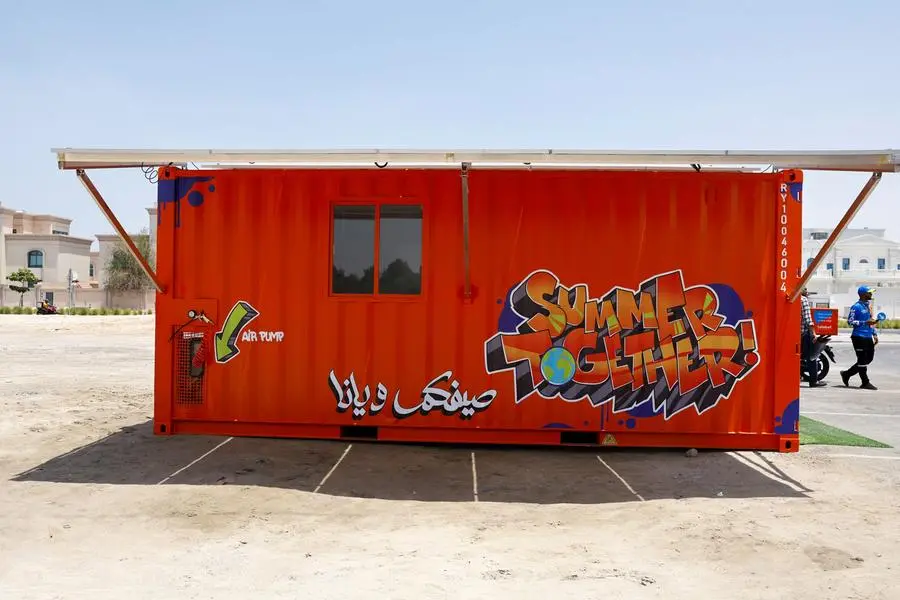PHOTO
Local authorities in Abu Dhabi have announced a six-pillar framework to lay the foundations for an organised system of work for the third sector – a not-for-profit, social enterprises and community volunteers.
During the inaugural Third Sector Forum hosted by the Department of Community Development – Abu Dhabi, several panel discussions, presentations, and workshops were held to deliberate on ways to support and empower the third sector in achieving sustainable community development.
The forum aimed to bolster the participation of the partners from the third sector in identifying and delivering solutions to key issues in the society, and maximise their impact.
Mohamed Helal Al Balooshi, Executive Director of the Community Engagement and Sports Sector at DCD, said the department remains committed to supporting the initiatives of the third sector.
“For the growth of the third sector, there’s a lot of enablers that need to be in place. And that’s where the DCD’s role comes along with the Authority of Social Contribution (Ma’an), private sector, and the rest of the government as well,” Al Balooshi told Khaleej Times on the sidelines of the forum.
Al Balooshi noted that the framework will empower the third sector as a major partner for all sectors.
Talking about the six key pillars that the public, private and the third sector collaborate under, he said are: awareness, legislation, financing, capacity building, partnerships, and incentives.
“All the axes form systems that support the work of the sector and enable institutions to achieve their goals, unify efforts provided to associations, and achieve an integrated framework that supports the department’s aspirations to grow the third sector.”
Explaining the DCD’s role in supporting the third sector, Al Balooshi pointed out the regulations as a key enabler. “We’ve developed regulations related to enabling the third sector. The policy for volunteering, fundraising… We’ve developed guidelines, tools and toolkits to incentivise people into the entry, and ease of establishing those institutions, and also for those institutions to be able to activate the role and be able to deliver on services.”
Al Balooshi pointed out that there will be quarterly initiatives, workshops addressing social priorities and reviews done to ensure tangible results.
“We will try to activate the entire ecosystem and framework of our third sector,” he said while pointed
Regulatory support, funding
Sara Musallam, Minister of State for Early Education, Chairwoman of Abu Dhabi Department of Education and Knowledge (ADEK), attended the forum, which saw the participation of more than 80 third-sector entities along with top officials from the government and private sector. Entities stressed the need to focus on critical areas like regulatory support, public and private sector partnerships, incentives among others.
Dr Mugheer Khamis Al Khaili, Chairman of the DCD, highlighted Abu Dhabi’s commitment to fostering a comprehensive and sustainable renaissance in the emirate by creating an integrated regulatory environment that encourages participation and contributions from all sectors.
“The DCD has actively supported NGOs as a crucial pillar of economic and social development. The third sector plays a pivotal role in finding solutions to social issues and challenges, and nurturing values of community participation, awareness, and responsibility, thereby continuously improving the social sector system.”
Al Khaili also stressed the significance of third-sector institutions and their primary role in supporting the community with their diverse skills, experiences, and resources, all of which contribute to enhancing services and improving the overall quality of life.
Abu Dhabi has more than 143 third-sector actors, 85 of which are public benefit associations, classified under various sectors, including civil institutions, humanitarian institutions, communities, solidarity funds, public and cultural institutions, folk arts, theatre, and professional bodies, in addition to social enterprise.
Salama Al Ameemi, Director General, of the Authority of Social Contribution (Ma’an), noted that a strong and effective third sector is needed to develop cooperative and cohesive societies.
“The Authority attaches great importance to empowering and developing the capabilities and growth of non-profit institutions and social institutions through social incubation programmes, accelerators, and grants. The grants offered by Ma’an aim to enable third sector agencies to launch community-focused programmes that provide sustainable solutions and address a wide range of social priorities.”
Copyright © 2022 Khaleej Times. All Rights Reserved. Provided by SyndiGate Media Inc. (Syndigate.info).





















